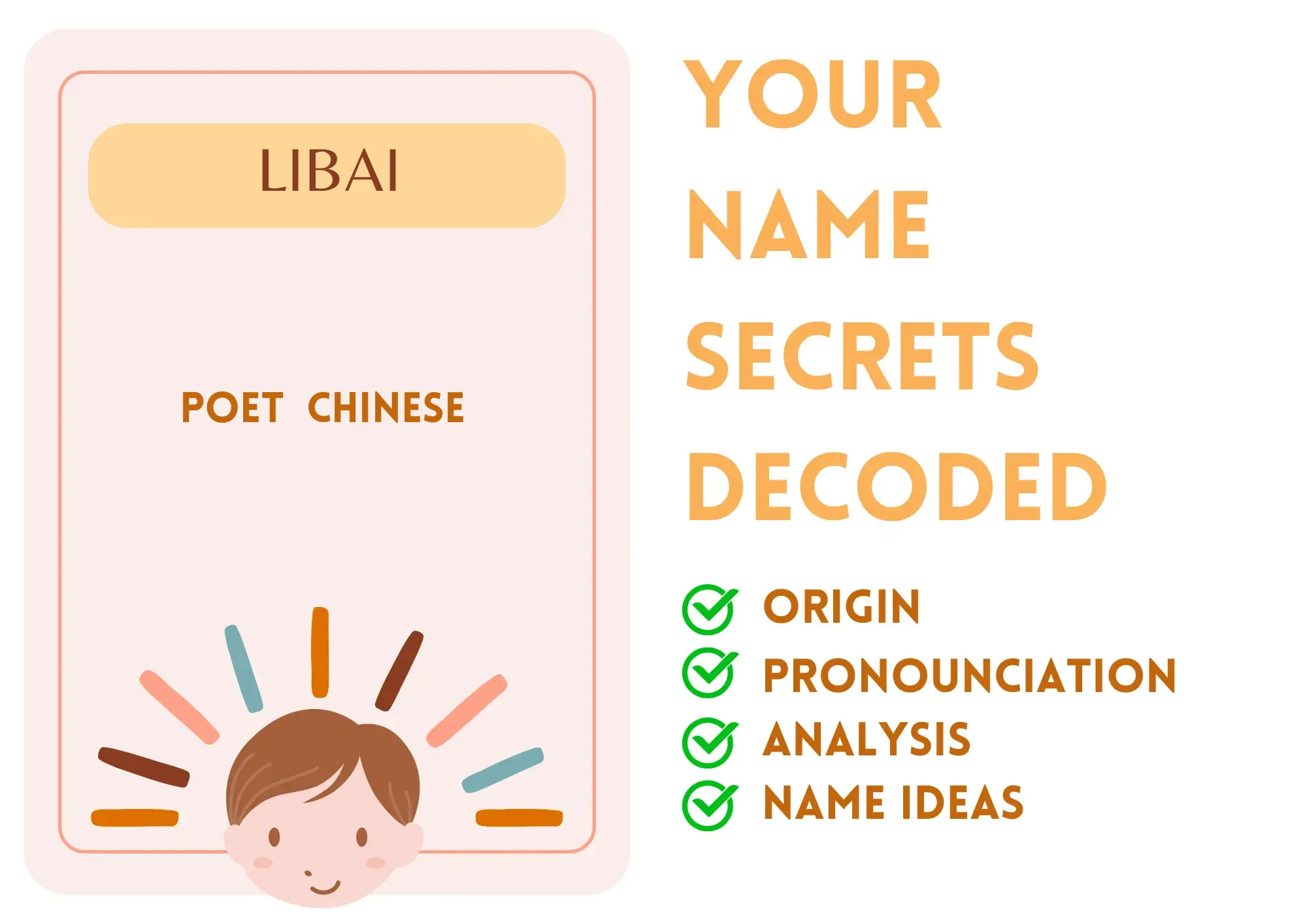
Libai
Libai is a unique name with Chinese origin, meaning 'poet' or 'the one who writes poetry.' The name is predominantly masculine, often associated with artistry and literary expression. Libai was notably borne by the famous Tang dynasty poet Li Bai, one of China's most celebrated literary figures. His poetry often reflects themes of nature, friendship, and the beauty of life.
This name carries a rich historical significance, as Li Bai's works have permeated Chinese culture and literature, making Libai a symbol of literary greatness. Many parents are drawn to the name due to its cultural weight and appreciation for the arts.
The perception of the name Libai is generally positive, evoking feelings of creativity, depth, and a connection to poetry. It is moderately easy to write and pronounce, though some may need clarity on spelling. Common nicknames for Libai might include Bai or Lee. The name is celebrated in various forms of media, including references to the poet in literature and art.
Basic Information
Gender: Boy
Sounds Like: LEE-bye
Pronunciation Explanation: The name is pronounced with a strong emphasis on the first syllable 'LEE,' followed by a short and soft 'bye.'
Summary and Meaning
Meaning: poet (Chinese)
Origin: Libai originates from Chinese culture and language, deeply connected to ancient poetry and literary traditions.
Usage: Libai is primarily a masculine name, traditionally used for boys.
Name Number (Chaldean)
Name Number (Pythagorean)
Popularity (Global Rank)
Overall: 635859
Boys:
Most Popular in
Religious and Cultural Significance
Religion: Buddhist
Background: In Chinese culture, poetry has a longstanding connection to Buddhism, often reflecting philosophical and mystical themes.
Cultural Significance: Libai is valued for its ties to one of China's greatest poets. The name signifies creativity and artistic expression, making it appealing to parents who wish to honor the arts.
Historical Significance: The name is historically significant due to its connection to Li Bai, whose poetry has been integral to Chinese literature and has influenced generations of poets and writers.
Popular Culture
Literature and Mythology: Li Bai's poems are often studied in schools and referenced in various literary works, cementing his place in popular culture.
Movies and Television: References to Li Bai can be found in films and television series that explore Chinese history, literature, and culture, often highlighting his artistic influence.
Feelings and Perceptions
Perception: Libai is perceived positively, evoking a sense of creativity and intellectual depth. It may also be considered uncommon, which adds to its uniqueness.
Positive Feelings: Creative, artistic, intellectual, unique, culturally rich, historically profound.
Negative Feelings: Some may find the name complex due to its origin and spelling, leading to potential misunderstandings.
Practical Considerations
Ease of Writing and Calling: Libai is relatively easy to pronounce, though its spelling may pose some challenges. It consists of five letters and two syllables, making it fairly straightforward to remember.
Common Typos and Misspellings: Libey,Li Bai,Lybai,Lebai
Common Nicknames: Bai,Lee,Li
Libai Popularity
Libai Usage and Popularity By Country
| Country | Rank (Overall) |
|---|---|
| Cameroon | 16801 |
| Singapore | 53638 |
| Philippines | 60398 |
| Netherlands | 70785 |
| United States | 539518 |
Libai Usage and Popularity By City
| City | Rank (Overall) |
|---|
Compatibility Analysis
Famous Persons Named Libai
No results found for Libai.
Related Names
Similar Sounding Names:
Levi,Lai,Libi,Labai
Similar Meaning and Related Names:
Sibling Name Ideas (Brothers):
Ren ♀️
Buddhist, Shinto (Japanese), Confucian (Korean)
Sibling Name Ideas (Sisters):
Jing ♀️
No specific religious association